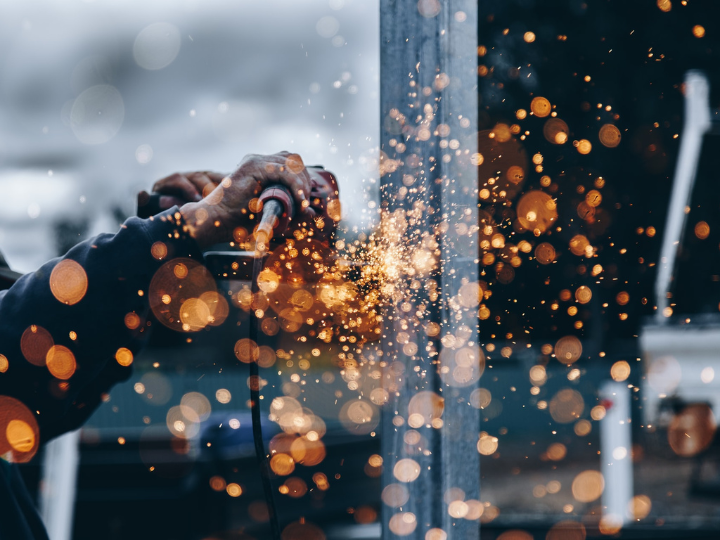by Francisco Betti, David Leal-Ayala, Roshan Gya and Gunter Beitinger*
A stark picture of the future of our planet was painted when the Intergovernmental Panel on Climate Change (IPCC) recently released its Sixth Assessment Report.
Global warming of 2°C compared to pre-industrial levels is forecast to be exceeded this century, unless deep reductions in greenhouse gas (GHG) emissions occur in the coming decades. This will lead to increased frequency and intensity of heatwaves, flooding and droughts.
The 2015 Paris Agreement aims to avoid this by capping the rise of global warming to “well below 2°C”. There are options available now, in every sector, that can at least halve emissions by 2030, but the IPCC insists on the urgency of the matter indicating a three-year timeframe to reverse the course.
Greenhouse gas emissions continue to climb
Despite this, GHG emissions continue to climb across all sectors – most rapidly in transport and industry, with the latter accounting for a quarter of global emissions.
Like in the EU, many countries have already legislated their commitment to emissions reduction, with more expected to follow. With carbon emission reduction targets passed into law, industries around the world will require major structural changes to secure their licence to operate, competitiveness and market share.
Forward-looking businesses are anticipating those regulations by committing to net zero targets before 2050. They are designing decarbonization plans, by assessing levers to gain energy and process efficiency; increase the reuse of products and raw materials as part of the ‘circular economy’; explore greener alternatives for raw materials; reduce production scrap; or utilize cleaner electricity, hydrogen, greener fuels and other carbon management technologies.
Some are finding ways to capitalize on first-mover advantages in this space through business models, innovation and new coalitions. Companies like Ericsson or Henkel, whose locations in Lewisville and Dusseldorf were designated as Sustainability Lighthouses, have been leveraging technologies like artificial intelligence (AI) and industrial internet of things to unlock new levels of production sustainability and optimize their resources efficiency.
Barriers to moving towards net zero
However, given the complexity and scale of the challenge, not all businesses have the basis to move towards net zero at the necessary pace. This is compounded by the fact that executives face an overwhelming range of decarbonization solutions.
Moreover, they face major implementation barriers, including complex modifications of products and industrial processes, the difficult sourcing of greener materials, or the significant changes required on their business practices, organization and culture.
The IPCC has also determined that a key challenge for the industry sector is the uncertainty, incompleteness, and quality of data on energy use and costs. The challenge is even more pronounced for scope 3 emissions – indirect emissions that occur in the reporting company’s value chain – as manufacturers will need data to set clear targets and standards for their suppliers, partners and customers.
Companies need a holistic framework to define an implementation strategy towards net zero operations. This includes understanding their maturity with regards to sustainability; designing a decarbonization roadmap; and ensuring that they have the skills, process and governance to drive this transformation.
Cross-sectoral collaboration key to meeting net zero
Manufacturers need to understand the range of possible options for transitioning toward net zero emissions, and that is where this initiative comes in. This includes both the application of existing approaches and technologies as well as new ones.
For example, data and digital technologies – including digital twins and AI – are being introduced to monitor the carbon footprint across the product lifecycle; to optimize energy and materials use; and to simulate and accelerate the needed transformations of products, manufacturing processes and value chains.
Decarbonizing industry also means re-designing products and industrial processes for greener and cleaner ones – this requires a strategy shift in their R&D and industrial engineering functions, which even when backed at CEO level is confronted to major implementation barriers – among them justifying the value case of decisions, driving the cultural change, and getting the right skills to drive the technical decisions.
While meeting the IPCC targets will require significant changes to existing processes, global supply chains reconfigurations will lead to the acceleration of new-build factory projects. This creates challenges for achieving net zero emissions, but also an opportunity to start with a clean slate and develop industrial concepts that incorporate sustainability best practices by design.
They encompass sustainable product design; greener building and industrial processes; data and digital technologies to regulate energy consumption and reduce scrap, create value chain models for circularity; and training people in sustainability practices. New carbon-neutral or even carbon-positive factories will also serve as lighthouses to spread the knowledge across the organizations and beyond.
To move into action, manufacturers could benefit from having a cross-industry space in which to collaborate and share insights with like-minded peers facing similar challenges. This would be an opportunity to address common roadblocks through new collaborations and partnerships for manufacturers and their suppliers, including small and medium enterprises, to accelerate their net zero transition.
*Head, Shaping the Future of Advanced Manufacturing & Value Chains; Member, ExCom, World Economic Forum and Deputy Head, Policy Links Unit (Institute for Manufacturing), University of Cambridge and Global Head of Intelligent Industry, Capgemini and Senior Vice-President, Manufacturing; Head, Factory Digitalization, Siemens
**first published in: www.weforum.org




 By: N. Peter Kramer
By: N. Peter Kramer
